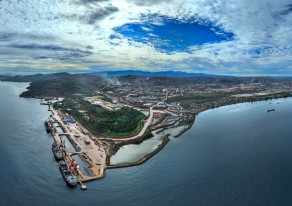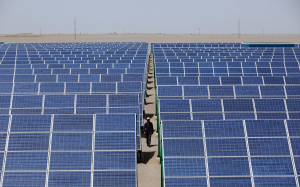IESR optimistic of achieving coal-fired power plants phaseout by 2040
The Institute for Essential Services Reform (IESR) is optimistic that President Prabowo Subianto administration’s target of completely shutting down all coal-fired power plants (PLTU) by 2040 is attainable.
“Ending the operation of coal-fired power plants and shifting to 100 percent renewable energy by 2040 is a formidable task, but one that is achievable,” Fabby Tumiwa, Executive Director of IESR, said in a press statement as quoted on Thursday, December 12, 2024.
The institute has outlined the steps necessary to achieve this goal, including the need for the Indonesian government to accelerate the deployment of renewable energy, aiming for a total of 60 to 80 gigawatts (GW) of renewable energy capacity within the next five years.
Fabby cited that over half of this capacity could be met by solar energy, as solar power has become the dominant source of new renewable energy capacity due to its abundance and the relatively low capital costs associated with its development.
While solar and wind energy are seen as intermittent sources, often cited as obstacles to their integration into the electrical grid, he believes these challenges can be addressed.
Solutions include optimizing load management, modernizing and strengthening the electrical grid, building more energy storage systems, and increasing grid flexibility.
"These initiatives will ensure a stable supply of environmentally friendly energy, maintain system reliability, and enhance energy resilience," Fabby said.
Strategic steps
Erina Mursanti, Manager of Green Energy Transition at IESR, stressed the need for alignment between national energy policies, the draft law on New and Renewable Energy, the National Long-Term Development Plan (RPJPN), and the Electricity Supply Business Plan (RUPTL).
She pointed out that high renewable energy targets within these policies would send a positive signal to investors, encouraging them to invest in renewable energy development.
"Aligning policies and setting high renewable energy targets will provide a positive signal to investors, encouraging investment in renewable energy projects," Erina said.
One of the key elements of Indonesia's energy transition is the development of a super grid, which will connect the islands of Sumatra, Java-Bali, Kalimantan, Sulawesi, and Nusa Tenggara.
The National Electricity Supply Business Plan (RUKN) 2023-2060 estimates that this massive infrastructure project will require an investment of around US$25 billion (Rp400 billion) to build 50,000 kilometers of transmission lines.
With these strategic steps, Indonesia is aiming to not only phase out coal but also build a more resilient, sustainable, and investor-friendly energy system that will power the country towards its clean energy future.
Already have an account? Sign In
-
Start reading
Freemium
-
Monthly Subscription
30% OFF$26.03
$37.19/MonthCancel anytime
This offer is open to all new subscribers!
Subscribe now -
Yearly Subscription
33% OFF$228.13
$340.5/YearCancel anytime
This offer is open to all new subscribers!
Subscribe now






